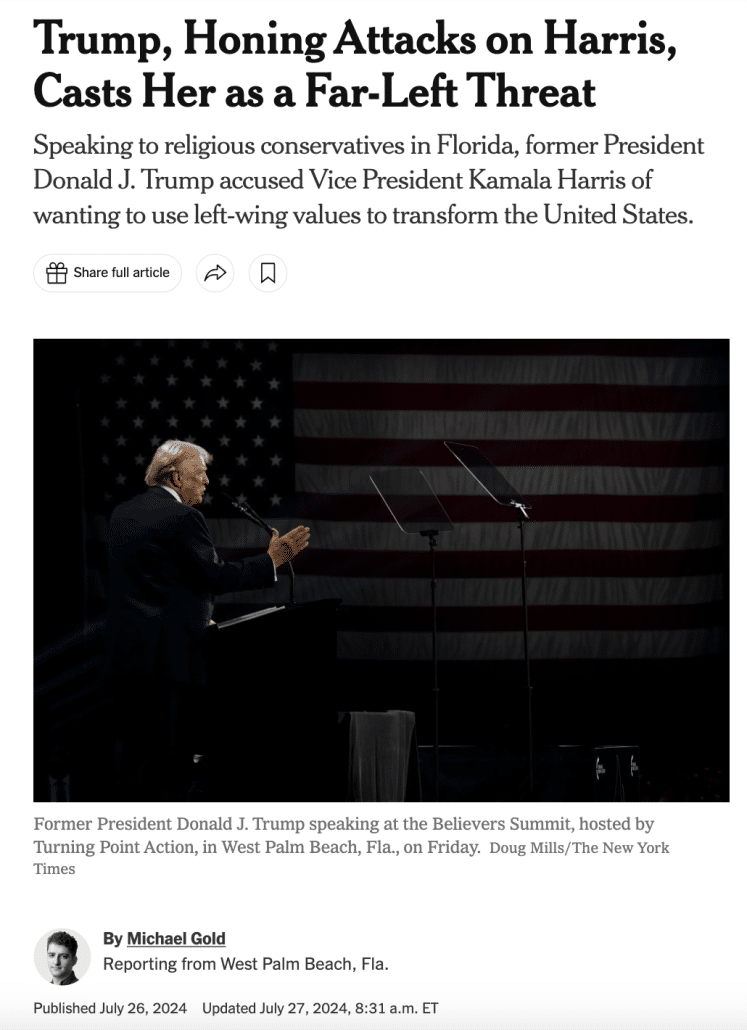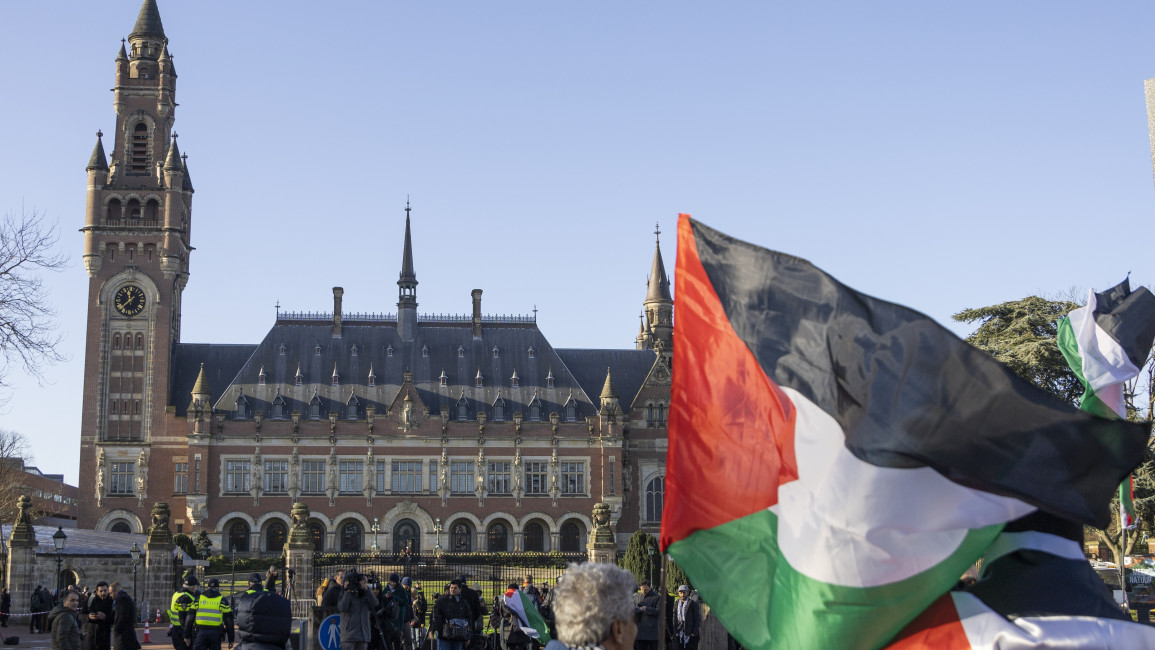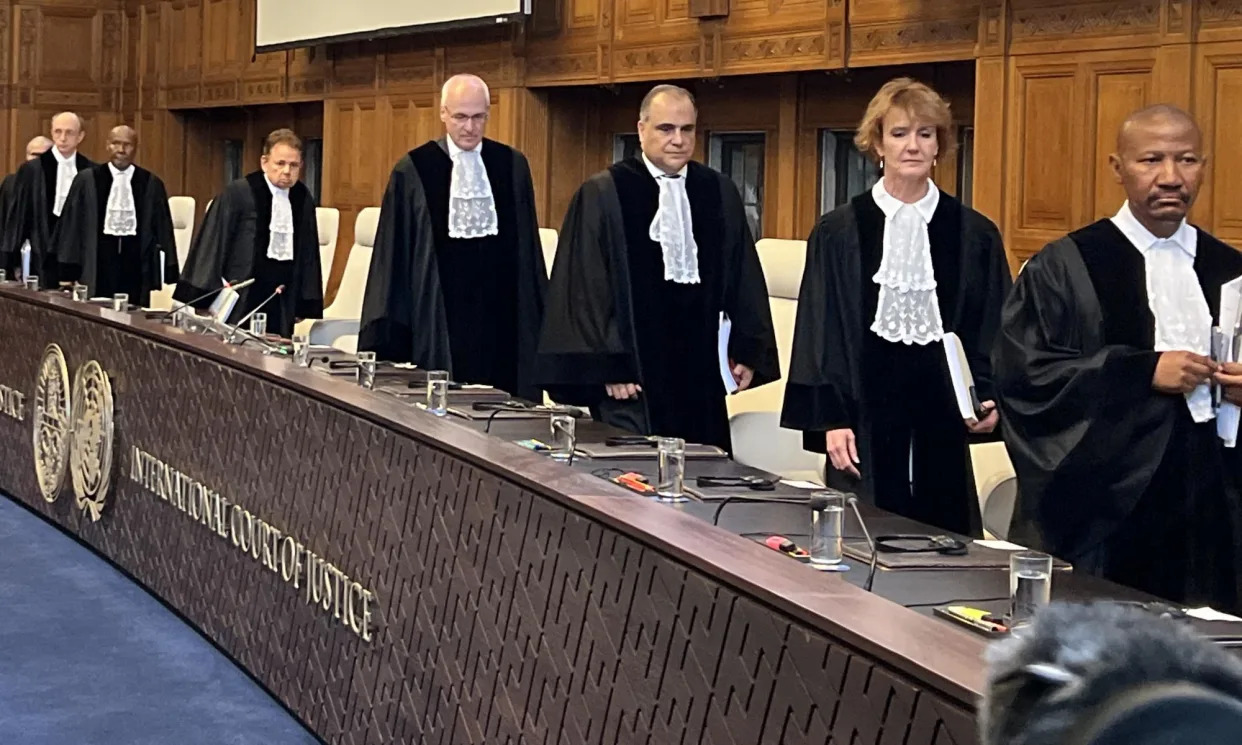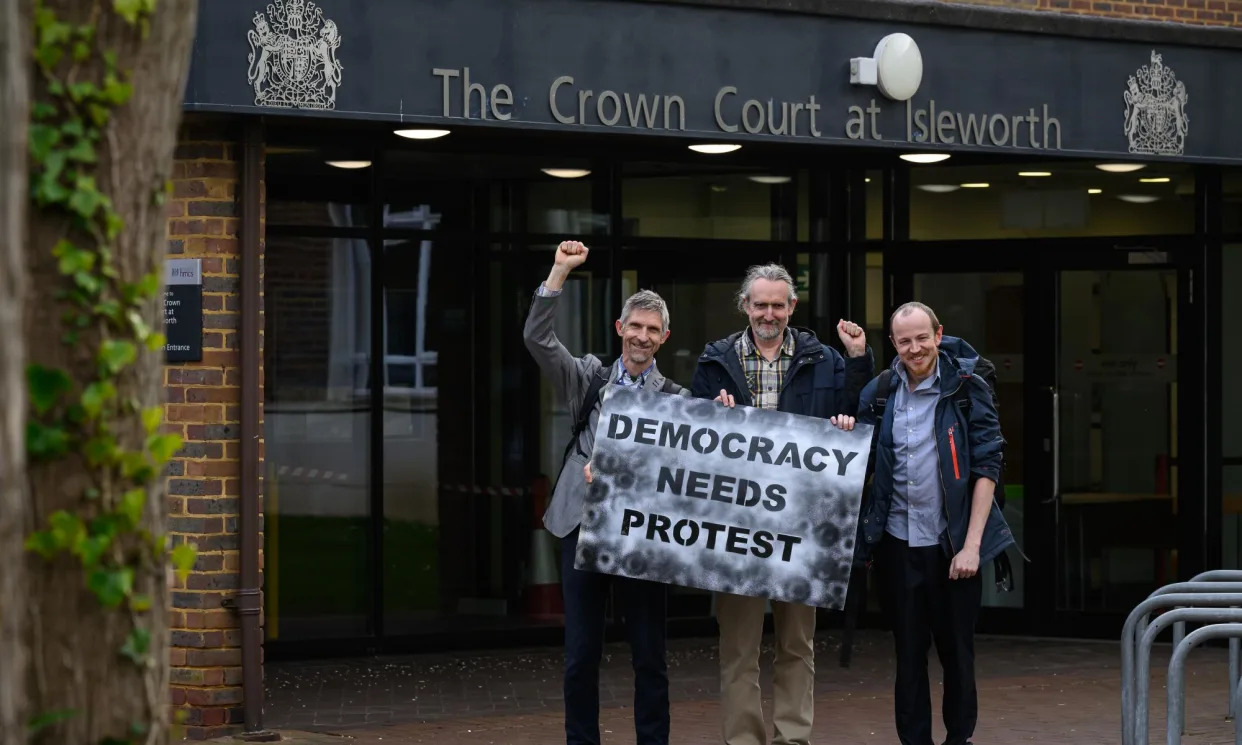“My Beautiful Christians:” Trump’s Pandering to Christian Nationalists
The other day, during an address to a Turning Point conference, Trump implored,
Christians, get out to vote. You won’t have to do it anymore. Four more years, it’ll be fixed, it’ll be fine. You won’t have to vote anymore my beautiful Christians. I love you. I’m [not/a] Christian.You have to get out and vote. In four years, you won’t have to vote again, we’ll have it fixed so good you’re not going to have to vote.
Horse race journalists didn’t care. They found it more important to repeat and therefore magnify Trump’s latest slur on Vice President Harris.
When I first looked at how NYT covered it at 3:37AM ET, this was their headline.
At 8:311AM, this story from Michael Gold was published. It still focused on magnifying the slurs Trump used against Harris.
Only much later, around noon ET, did Gold figure out that the “not have to vote” stuff was far more newsworthy than Trump calling the Vice President a “bum.”
That story included Trump’s comment about voting, along with Gold’s spin of it as a claim that Trump would address the concerns of Christian voters sufficiently that they would no longer have to vote, buried in ¶14.
At the end of his speech, Mr. Trump urged the religious crowd to vote in November, suggesting that if elected he would address their concerns sufficiently enough that they would no longer need to be politically active. Earlier, he had lamented that conservative Christians do not vote proportionately to their size, a complaint he has made repeatedly in recent weeks.
“Christians, get out and vote. Just this time,” Mr. Trump said on Friday. “You won’t have to do it anymore, you know what? Four more, years, it’ll be fixed, it’ll be fine, you won’t have to vote anymore, my beautiful Christians.”
Let it be noted that one of NYT’s allegedly professional horserace journalists believes that the white Evangelical Christians who have been among Trump’s most important supporters vote in disproportionately low numbers or that any Republican would forego that most important part of their coalition. (That said, for demographic reasons Trump can’t change with a speech, white Evangelicals make up an increasingly smaller proportion of the voting public, which poses an entirely different kind of threat than apathy.)
In spite of disinterest by journalists paid to write horserace stories, the clip went viral on social media, setting off a debate about what Trump meant. Right wing trolls pushed the same horseshit claims of low turnout (again, we’re talking about the in-person and TV audience for a Turning Point conference!) that Gold provided. Others attributed it to Trump’s narcissism, a suggestion that he only cares about votes so long as he would be on the ballot.
Three Sunday morning shows dealt with it — all abysmally.
Martha Raddatz for example, let Chris Sununu dismiss the comments as a “classic Trumpism,” without asking what he meant by “this stuff” when he said it “can be fixed.” Then she went back to the horse race.
There are several things people are ignoring.
First, Trump said something quite similar — and he said it at another Turning Point conference — just a month and a half ago, in Detroit.
Only, at that point, before Joe Biden had dropped out of the race, Trump said,
I said, we don’t need votes. And Charlie Kirk is helping. He’s got his army of young people. These are young patriots. They don’t want to see happen what’s been happening in our country.
Thank you Charlie.
[USA chants]
And I said to Charlie, and I said to Michael [Whatley], listen, we don’t need votes. We’ve got more votes than anybody’s ever had. We need to watch the vote, we need to guard the vote.
We need to stop the steal.
In mid-June, before Biden dropped out, Trump wasn’t concerned about turnout. Now he is.
This comment — to the people Charlie Kirk had assembled to listen to Donald Trump — is best understood as a comment about Trump’s plan to win. As the January 6 Committee discovered, when Trump decided in late December 2020 that he was going to speak and march to the Capitol, Carline Wren turned to Kirk to help turn out bodies. Turning Point was also allegedly used to launder speaking fees to Don Jr and his girlfriend. As it happened, Kirk backed out of attending and deleted his boasts about arranging dozens of busses so others could do so. He pled the Fifth rather than explain to the January 6 Committee anything about all that.
But nevertheless, Charlie Kirk got busloads of people to Trump’s insurrection.
To the extent that Trump needs lots of bodies to be somewhere, Charlie Kirk is a key part of that process. And in June, he wanted them out to surveil polling centers, once again mobilizing Stop the Steal. Friday, he emphasized he actually needs some people to show up to the polls.
Trump’s plans for the election — and how they may have changed with Biden’s departure — is an important background for this. As Tim Alberta described it, after Trump took over the RNC, he got rid of the field organization (potentially dooming down-ticket candidates), and replaced it with Big Lie perpetrators.
The Trump campaign’s takeover of the RNC in March—installing the former president’s daughter-in-law, Lara Trump, as the new co-chair, while establishing LaCivita as chief of staff and de facto chief executive, all of it long before Trump had technically secured the party’s nomination—didn’t sit well with many Republicans. Appearances aside, the imperatives of a presidential campaign are not always aligned with those of the RNC, whose job it is to advance the party’s interests up and down the ballot and across the country. “Party politics is a team sport. It’s bigger than Ronald Reagan or Donald Trump or any one candidate,” said Henry Barbour, a longtime Mississippi committeeman, who has fought to prevent the national party’s funds from going to Trump’s legal defense. “Nobody’s ever going to agree on exactly how you split the money up, but you’ve got to take a holistic approach in thinking about all the campaigns, not just one.”
The RNC under Ronna McDaniel, who chaired the national party from early 2017 until LaCivita’s takeover, had become a frequent target of Trump’s ire. He didn’t like that the party remained neutral in the early stages of the 2024 primary—and he was especially furious that McDaniel commissioned debates among the candidates. But what might have bothered him most was the RNC’s priorities: McDaniel was continuing to pour money into field operations, stressing the need for a massive get-out-the-vote program, but showed little interest in his pet issue of “election integrity.”
“Tell you what,” Trump said to Wiles and LaCivita. “I’ll turn out the vote. You spend that money protecting it.”
The marching orders were clear: Trump’s lieutenants were to dismantle much of the RNC’s existing ground game and divert resources to a colossal new election-integrity program—a legion of lawyers on retainer, hundreds of training seminars for poll monitors nationwide, a goal of 100,000 volunteers organized and assigned to stand watch outside voting precincts, tabulation centers, and even individual drop boxes.
When someone fires all the field staff and instead hires Christina Bobb, it’s a pretty big tell that they don’t plan to win the election the democratic way.
They plan to double down on the Big Lie.
Or they did, before Biden dropped out.
As Alberta noted in a follow-up, Trump’s entire plan revolved around Biden. Now Trump is stuck plaintively reminding rally-goers of the six-year campaign, he and Russia, with the help of the entire Republican party, launched against Biden’s kid. “Where’s Hunter? … That was the big one.”
That’s a big part of the background that is missing from discussion of Trump’s comments.
The other is what it means that, after falsely claiming that Christians are being targeted by law enforcement right along with billionaires who engaged in fraud to cover up fucking a porn star, Trump told a bunch of Christian nationalists that they needed to vote just one more time.
As Sarah Posner laid out in a piece analyzing the way right wingers exploited the shooting attempt on Trump, these are people who use apocalyptic tropes to motivate voters and activists.
For the Trump faithful who believe God anointed him president and, after the attempt on his life, that God protected him from death, there are no coincidences — only miracles, signs, and wonders. Charlie Kirk, the founder of the far-right Turning Point USA and a fellow denizen of the conspiratorial fever swamps of X, chimed in on Posobiec’s tweet. “Armor of God,” he replied, just in case Posobiec’s meaning was lost on anyone. “The next verse is this: ‘For we do not wrestle against flesh and blood, but against the rulers, against the authorities, against the cosmic powers over this present darkness, against the spiritual forces of evil in the heavenly places.’” For good measure, Posobiec replied to Kirk, quoting the next verse, Ephesians 6:13. “Therefore, put on the armor of God,” he concluded, “that you may be able to resist on the evil day and, having done everything, to hold your ground.”
Posner added more in Bluesky this thread.
The point is, Trump’s audience of Christian nationalists do view taking over government in apocalyptic terms. They did, on January 6. And it nearly worked the first time.
This was only a Trumpism, as Sununu called it, to the extent that Trump is an epic conman who knows how to mobilize his audience, even Christian nationalists with whom Trump shares little more than a fondness for authoritarianism.
So sure: Perhaps this was just an attempt to juice more turnout out of a group that already turns out in high numbers, almost exclusively for Republicans. Or maybe — as his comments in June were — it’s part of a larger effort to delegitimize democracy.
But even beyond Trump’s last coup attempt, there’s a context here, one you need to at least acknowledge if you’re going to claim to assess his comments.












:max_bytes(150000):strip_icc():focal(734x176:736x178):format(webp)/Abortion-Ban-iowa-072924-tout-5874bec8d678442697f128b926a7e36a.jpg)
:max_bytes(150000):strip_icc():focal(753x311:755x313):format(webp)/Abortion-Ban-iowa-072924-1-b466cf309bdb424cbd13b9d9432719c2.jpg)







.jpg)